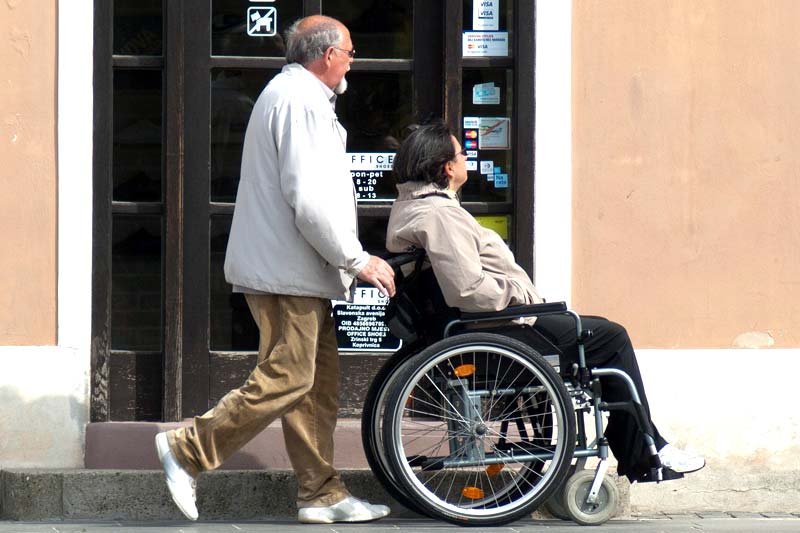Disability in Older People – Conditions & Risks : The population in the UK is getting older with 18% aged 65 and over and 2.4% aged 85 and over. In 2016 there were 285 people aged 65 and over for every 1,000 people aged 16 to 64 years (Source: Office for National Statistics, UK). These aged people are prone to certain conditions which make them physically disable for carrying out their daily work and restrict their commuting abilities.
Basically, there are five types of chronic illness that contribute largely to disability in people aged over 65 years:
- Foot problems
- Arthritis
- Cognitive impairment
- Heart problems
- Vision
Other more common or important problems of disability include:
- Hearing impairment.
- Chronic respiratory and cardiovascular disease such as chronic obstructive pulmonary disease (COPD), chronic heart failure, coronary heart disease and cerebrovascular disease.
- Falls and hip fracture.
They are not just single ailments but can revert into more complex medical conditions, which further add a degree of deterioration to the quality of life of the elderly people.
Risk factors
Frailty in the elderly can be a result of physical inactivity, chronic disease, and anorexia/malnutrition in later adulthood.
The main risk factors for functional disability in elderly people in the community are
- chronic diseases
- arthritis
- diabetes
- visual impairment
- obesity
- poor self-perceived health
- cognitive impairment
- depression
- slow gait
- sedentary lifestyle
- tiredness while performing daily activities
- and limited diversity in social relations
The people in developing countries are more prone to the higher degree of these risks due to unavailability of benefits and medical aides.
Comorbidities – cause for higher disabilities
With weaken immunity and body strength, people aged 70 years and over often have one or more chronic conditions. This, in medical term, is known as comorbidities which may contribute to disability. For example:
- Stroke can lead to weakness, coordination problems, locomotor difficulties and problems of communication and continence.
- Heart failure, angina or myocardial infarction can be the result of coronary heart disease.
- Uncontrolled diabetes may lead to complications like loss of vision, amputation of body parts, which will result in disability.
- Alzheimer’s disease is the most common neurodegenerative disease.
- Urinary problems can be disabling, particularly if causing incontinence.
- Depression makes disability worse.
- Disability due to loss of vision increases the risk of falling.
- Hearing and visual impairment increase the risk of social isolation, further aggravating depression.
- The prevalence of osteoporosis in the elderly population is the major cause of falls, which are more likely to result in fractures.
What can be done at personal home level?
The government has provision for disability benefits and rights for the elderlies, which is the first step for providing a safe living to them. But there is more we can do at our own personal levels, to make their everyday living more secure and independent.
- Help them in establishing security gears and equipment in the house such as handrails, raised toilet seats, bed raisers, hoists, walk-in baths. You can even lend them financial help (if the additional cost is incurred after government funds) and advise on selecting the best equipment. You can click here to see options for walk-in baths and showers, for them.
- Whenever you are around them, try to help them as much as possible, but do take care of their temperament. Some elderlies start to feel obsessed with doing everything on their own. Do not force them if they feel uncomfortable about their disabling conditions.
- They deserve the time and attention of the family and friends. Talking and meeting them frequently can lower the risk of depression.
- You can also help with their disability benefits claim. They require your personal presence and intellect support to claim what they deserve.
The older population is an important part of society and our lives too. In their able days, they have done a lot for country and family. In their not-so-able days, they deserve every possible attention and comfort.
Related videos to Disability in Older People :
Smart Home Solution for People with Disabilities and Older People
Communicating With the Elderly and Disabled
Disability in Older People – Conditions & Risks
elderly disabilities list, disabilities in older adults, age related disabilities, most common disability in older adults, aging and disability statistics, age and disability, elderly disabled, geriatric conditions and disability, Disability in Older People




